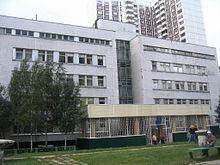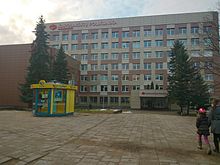

Transitioning from Botox, you'll find that fillers offer another transformative path to rejuvenation and beauty at Manhas Health Co. It's important to have realistic expectations. There's no downtime, allowing you to resume your daily activities immediately. Learn more about Botox lip flip New Westminster here At Manhas Health Co., you're not just another client; you're a valued member of our community, and our expert team is here to ensure your aesthetic journey is both successful and enjoyable.
We're committed to providing you with the highest quality of care, ensuring each visit leaves you feeling better, more confident, and satisfied with your results.
While fillers offer a remarkable avenue for cosmetic enhancement, exploring other advanced treatments at Manhas Health Co can further elevate your journey to achieving your aesthetic goals. You're likely wondering how it works. But it's not all about the equipment. With their expert team, cutting-edge technology, and personalized care, you're in good hands.
With Manhas Health Co., you're not just getting a treatment; you're investing in a healthier, more confident you. They've invested in technologies that enhance muscle tone, giving you that sculpted look you've been dreaming of. You won't have to worry about downtime either.
It's not just about losing weight; it's about reshaping and refining your figure to match your vision for yourself. With years of experience in the aesthetic field, our team understands that every individual's body and goals are unique. Natural-looking Botox results Before your IPL photo facial or laser hair removal session at Manhas Health Co, there are a few key steps you should follow to ensure the best possible outcome. Botox for excessive sweating Advanced Botox techniques
Evolve-X's cutting-edge technology targets specific areas for fat reduction, muscle definition, and skin tightening without requiring weeks or months to start seeing a difference. After payment, you're all set! Our professionals are here to guide you through each step, from the initial consultation to the post-treatment care, ensuring you feel supported and informed.
The area now known as New Westminster was originally inhabited by Kwantlen First Nation The discovery of gold in BC and the arrival of gold seekers from the south prompted fear amongst the settlers that Americans may invade to take over this land.
It's also important to resist the temptation to scratch or pick at your skin, as this can lead to irritation or even scarring. Sunburned or tanned skin can negatively affect the procedure's effectiveness and increase the risk of side effects. We're committed to offering you a suite of services that cater to long-term beauty and wellness.


Our expert team is ready to guide you through a journey of self-discovery and confidence-building, offering ongoing support and care every step of the way. Your skin feels smoother, looks brighter, and exudes a healthy radiance that's hard to miss. That's why they're not just focused on the procedure itself but also on tailoring a personalized plan that aligns with your individual needs and aspirations. Book your appointment today at Manhas Health Co., and let's take you on a journey to rediscover your skin's natural beauty and vitality.
Start by avoiding any form of exfoliation for at least a week before your appointment. If you're dealing with any pain, over-the-counter pain relief medication can help, but it's best to consult with your provider before taking anything. Our state-of-the-art technology and innovative techniques ensure you receive the highest quality of care.
These products are less harsh and help retain the natural moisture of your scalp and hair, promoting a healthier growth environment. Before deciding, you'll have a consultation at Manhas Health Co., where your medical history, current health status, and goals will be discussed. Plan a night out with friends or a special date where you can feel proud and confident in your skin's appearance. Age-defying treatments Understanding the differences between Morpheus 8 and PRP treatments sets the stage for appreciating real success stories from Botox lip flip New Westminster.
This procedure is specifically tailored for individuals seeking non-invasive solutions to achieve a more youthful appearance without the downtime associated with surgical interventions. Botox for eyebrow lift Book your appointment today and step into a world where age is truly just a number. Led by renowned specialists in the field of aesthetic medicine, our professionals are dedicated to offering the latest in non-surgical rejuvenation techniques.


Choosing laser hair removal means investing in smoother skin for the long haul. The specialist will ensure your skin is clean and free of any products. Recognizing that each client has unique needs, we create personalized treatment plans tailored just for you. Moreover, Manhas Health Co.
When you undergo PRP treatment for hair restoration, your session will start with the collection of a small blood sample from your arm.


A clinic (or outpatient clinic or ambulatory care clinic) is a health facility that is primarily focused on the care of outpatients. Clinics can be privately operated or publicly managed and funded. They typically cover the primary care needs of populations in local communities, in contrast to larger hospitals which offer more specialized treatments and admit inpatients for overnight stays.
Most commonly, the English word clinic refers to a general practice, run by one or more general practitioners offering small therapeutic treatments, but it can also mean a specialist clinic. Some clinics retain the name "clinic" even while growing into institutions as large as major hospitals or becoming associated with a hospital or medical school.

The word clinic derives from Ancient Greek κλίνειν klinein meaning to slope, lean or recline. Hence κλίνη klinē is a couch or bed and κλινικός klinikos is a physician who visits his patients in their beds.[1] In Latin, this became clīnicus.[2][3]
An early use of the word clinic was "one who receives baptism on a sick bed".[4]

Clinics are often associated with a general medical practice run by one or several general practitioners. Other types of clinics are run by the type of specialist associated with that type: physical therapy clinics by physiotherapists and psychology clinics by clinical psychologists, and so on for each health profession. (This can even hold true for certain services outside the medical field: for example, legal clinics are run by lawyers.)
Some clinics are operated in-house by employers, government organizations, or hospitals, and some clinical services are outsourced to private corporations which specialize in providing health services. In China, for example, owners of such clinics do not have formal medical education. There were 659,596 village clinics in China in 2011.[5]
Health care in India, China, Russia and Africa is provided to those regions' vast rural areas by mobile health clinics or roadside dispensaries, some of which integrate traditional medicine. In India these traditional clinics provide ayurvedic medicine and unani herbal medical practice. In each of these countries, traditional medicine tends to be a hereditary practice.

The function of clinics differs from country to country. For instance, a local general practice run by a single general practitioner provides primary health care and is usually run as a for-profit business by the owner, whereas a government-run specialist clinic may provide subsidized or specialized[dubious – discuss] health care.
Some clinics serve as a place for people with injuries or illnesses to be seen by a triage nurse or other health worker. In these clinics, the injury or illness may not be serious enough to require a visit to an emergency room (ER), but the person can be transferred to one if needed.
Treatment at these clinics is often less expensive than it would be at a casualty department. Also, unlike an ER these clinics are often not open on a 24/7/365 basis. They sometimes have access to diagnostic equipment such as X-ray machines, especially if the clinic is part of a larger facility. Doctors at such clinics can often refer patients to specialists if the need arises.[6]

Large outpatient clinics vary in size, but can be as large as hospitals.
Typical large outpatient clinics house general medical practitioners (GPs) such as doctors and nurses to provide ambulatory care and some acute care services but lack the major surgical and pre- and post-operative care facilities commonly associated with hospitals.

Besides GPs, if a clinic is a polyclinic, it can house outpatient departments of some medical specialties, such as gynecology, dermatology, ophthalmology, otolaryngology, neurology, pulmonology, cardiology, and endocrinology. In some university cities, polyclinics contain outpatient departments for the entire teaching hospital in one building.

Large outpatient clinics are a common type of healthcare facility in many countries, including France, Germany (long tradition), Switzerland, and most of the countries of Central and Eastern Europe (often using a mixed Soviet-German model), as well as in former Soviet republics such as Russia and Ukraine;[7] and in many countries across Asia and Africa.[8]
In Europe, especially in the Central and Eastern Europe, bigger outpatient health centers, commonly in cities and towns, are called policlinics (derived from the word polis, not from poly-).
Recent[when?] Russian governments have attempted to replace the policlinic model introduced during Soviet times with a more western model. However, this has failed.[9]
In the Czech Republic, many policlinics were privatized or leasehold and decentralized in the post-communist era: some of them are just lessors and coordinators of a healthcare provided by private doctor's offices in the policlinic building.[10]
India has also set up huge numbers of polyclinics for former defense personnel. The network envisages 426 polyclinics in 343 districts of the country which will benefit about 33 lakh (3.3 million) ex-servicemen residing in remote and far-flung areas.[11]
Policlinics are also the backbone of Cuba's primary care system and have been credited with a role in improving that nation's health indicators.[12]


Providing health services through mobile clinics provides accessible healthcare services to these remote areas that have yet to make their way in the politicized space. For example, mobile clinics have proved helpful in dealing with new settlement patterns in Costa Rica. Before foreign aid organizations or the state government became involved in healthcare, Costa Rica's people managed their own health maintenance and protection.[13] People relied on various socio-cultural adaptations and remedies to prevent illnesses, such as personal hygiene and settlement patterns.[13] When new settlements that sprang up along the coast became "artificial" communities, and due to lack of traditional home healing practices here, alternative methods such as mobile clinics had to be implemented in these communities for the protection and prevention of diseases.[13]
A study done in rural Namibia revealed the health changes of orphans, vulnerable children and non-vulnerable children (OVC) visiting a mobile clinic where health facilities are far from the remote villages.[14] Over 6 months, information on immunization status, diagnosis of anemia, skin and intestinal disorders, nutrition, dental disorders was collected and showed that visits to mobile clinics improved the overall health of children that visited regularly. It concluded that specified "planning of these programs in areas with similarly identified barriers may help correct the health disparities among Namibian OVC and could be a first step in improving child morbidity and mortality in difficult-to-reach rural areas."[14]

Food supplementation in the context of routine mobile clinic visits also shows to have improved the nutritional status of children, and it needs further exploration as a way to reduce childhood malnutrition in resource-scarce areas. A cross-sectional study focussed on comparing acute and chronic undernutrition rates prior to and after a food-supplementation program as an adjunct to routine health care for children of migrant workers residing in rural communities in the Dominican Republic.[15] Rates of chronic undernutrition decreased from 33% to 18% after the initiation of the food-supplementation program and shows that the community members attending the mobile clinics are not just passively receiving the information but are incorporating it and helping keep their children nourished.[15]

There are many different types of clinics providing outpatient services. Such clinics may be public (government-funded) or private medical practices.
cite book: |website= ignored (help)
Cosmetic may refer to:
To stay abreast of the latest in aesthetic medicine, you'd find Manhas Health Co. regularly attending industry conferences, investing in continuous staff training, and forming partnerships with leading technology providers in the field.
You'll want a practitioner with specialized training in dermatology or plastic surgery and significant experience in administering Botox and fillers. Ensure they're certified and have a track record of safe and effective treatments.
You're exploring the less talked about, yet vital, side of cosmetic treatments: patient safety and awareness. It's key to understand the risks and side effects of procedures like botox and fillers for informed decisions.